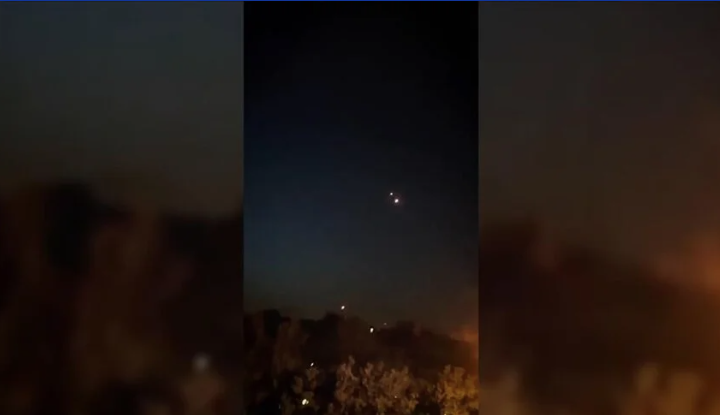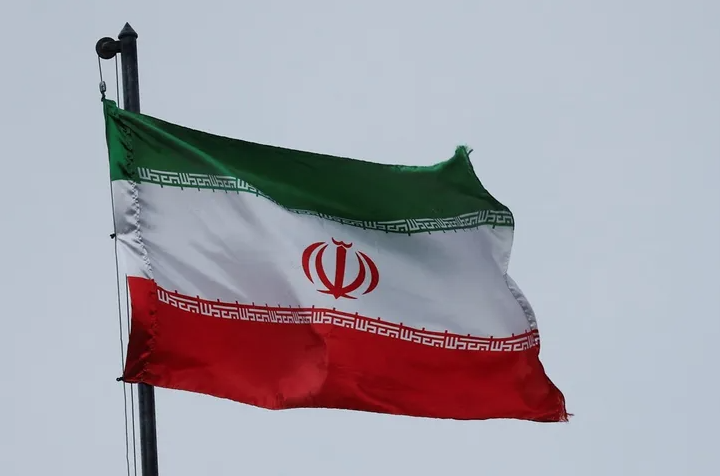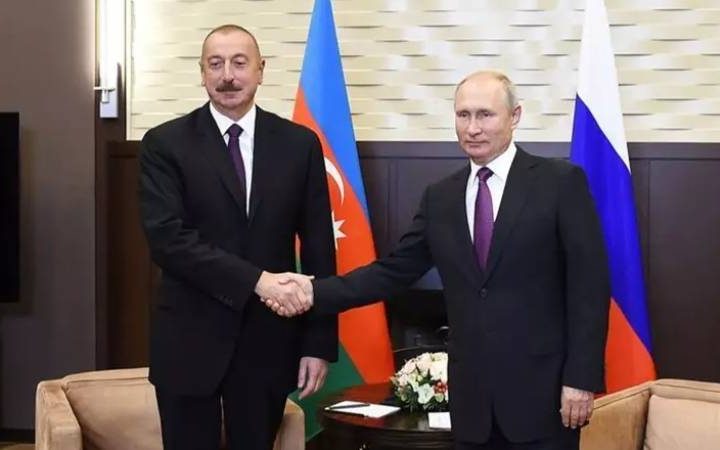Iraq came first. There were well-attended, well-organized and comprehensive talks. Then came the President of Iran. Here, too, there were very long, well-prepared sessions. In between, the Astana meeting was held in Kazakhstan. Now on February 12, the Russian President is coming. There is a ‘tour’ and let’s remember, Turkey has always been subjected to extraordinary terrorist attacks in between the contacts…
We see that the West has turned on its radar with the prospective visit of Putin. The finely-tuned statements from both the US and the UN were along the lines of “if it will lead Russia to the right path, of course it can be discussed, we are following it”…
The ‘Welfare’ Road was also on the table with Iraq, but for Ankara, the first place in all negotiations was devoted to the fight against terrorism. Now Putin will arrive, but in the meantime, there has been a new development in the already complicated region; the US base, or more precisely its extension ‘Tower No. 22’ at the Iraq-Syria-Jordan nexus has been attacked, killing American soldiers…
Then retaliatory strikes began, especially in Iraq and Syria, and Iranian proxies began to be hit by the US. The US bases continued to be hit in return. The last one took place in Deir ez-Zor, Syria, where US forces were stationed and PKK/YPG elements were located, and it was announced that 6 terrorists were killed. To put it simply, Iran has hit the PKK!
Inevitably, the thought that ‘this could be one of the outcomes of the Erdogan-Raisi meeting’ started to be discussed. It does not seem possible to know whether it is or not for now, but it will be remembered that we wrote that ‘we will know by looking at the field’…
WHAT DOES ‘CONTROLLED TENSION’ BETWEEN USA AND IRAN MEAN?
Last Sunday evening, Foreign Minister Mr. Hakan Fidan’s interview with a news channel summarized the general policies on how Turkey stands on current/actual issues…
Among these, the approach that the US and Iran share a ‘controlled tension’ in the Middle East deserves to be examined…
The process, which has unfolded with the deaths of three US soldiers, comes on top of the Israel-Gaza crisis, feeding concerns that the war could spread throughout the region. Turkey is also worried about this…
It is not new information that Tehran and Washington have a tacit understanding that the war should not spread to the region. In fact, both countries have carefully underlined this, both at the beginning of the genocidal process that Israel has embarked on and from the first moments of the attack on the US tower. In fact, the moment the US struck the subcontractor organizations in Iraq and Syria, it declared, “We will not hit Iran”. This ‘back and forth’ amounts to a tacit agreement…
For Ankara, this situation is not reassuring; no matter how much the parties want to avoid ‘strategic expansion’, the whole region is full of open ends. It is possible for it to short-circuit and catch fire at a moment’s notice…
This is one side of the issue. On the other side, there is the issue of the PUK, which has now risen to a public/official level in Turkey’s fight against terrorism. We are talking about a reality whose relationship with the PKK requires intervention. It seems that the ‘last leg’ of the ‘phased’ approach has been approached. It can be said that the PUK has become an ‘enemy’ for Ankara…
While this is the case in terms of PUK-Turkey, the PUK-Iran relationship – though not explicitly stated by the official mouthpieces – is mentioned by everyone. So, should we take Mr. Fidan’s “controlled tension between Iran and the US” only in the context of concern about regional expansion?
Undoubtedly, the expression of a partnership that is anti-Turkey and meets on the PKK denominator is a step too far for today. However, the very mention of the phrase calls for reflection on the nature of Ankara-Tehran relations. Can a ‘negative’ reading of how the Reisi-Erdogan meeting in Ankara went be included in Fidan’s statement?
Or, our opening question, can Iran’s strikes on the PKK be considered as the outcome of an agreement between Ankara and Tehran?
With Putin’s visit, the US presence in the Syrian equation will become more debated in terms of the fight against terrorism and the chaos in the region. This will be coupled with the issue of US withdrawal/reduction from the region, which does not seem very realistic. It will create a new crucible in the fight against terrorism. Ultimately, it will be combined with whether the expectation of a new operation will come to life or not.
‘EUROPEAN UNION’ IS NOT A QUESTION FOR US!
It is felt that Minister Fidan approaches ‘geopolitical/strategic/intellectual’ discussions with more enthusiasm and enjoys them as much as the burning daily developments. We have seen an example of this on the EU…
Any positive statement from the EU is still greeted with enthusiasm by the Turkish press and is still splashed across the headlines…
For example, the recent statement by the EU Foreign Minister Borrell that “we need to improve our relations with Turkey” was also magnified in the spirit of “we can become a member tomorrow”. However, at the end of the same speech, the question of visas and the answer “I don’t know how it will happen” was left untouched. This is exactly the description of Turkey-EU relations today; “we don’t know how it will be”…
Minister Fidan listed what Europe would gain if Turkey’s EU membership was realized…
One, there would have been no Brexit, the UK could have stayed in the EU and prevented similar “exit” pursuits. Two, they could have acted more independently in Atlantic-European relations. Three, they could have avoided problematic areas in the Middle East and Africa. Four, they could have achieved their desired role in the global strategic balance of power. Five, they would have a trump card in the vital issue of migration, which they currently have none. Etc…
The significance of these assessments is that the items they missed have had grave consequences for Europe’s vital functions. The reason why they failed to see a period of 10-15 years in total is an enormous strategic blindness. They have also crippled the so-called ‘European values’. This is why we understand Fidan’s statement that “EU membership is not an issue for us”.




